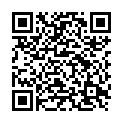|
|
|
| Module code: MST.TMM |
|
|
4V (4 hours per week) |
|
5 |
| Semester: 4 |
| Mandatory course: yes |
Language of instruction:
German |
Assessment:
Written exam
[updated 10.05.2021]
|
MST.TMM (P231-0085) Mechatronics and Sensor Technology, Bachelor, ASPO 01.10.2012
, semester 4, mandatory course
MST.TMM (P231-0085) Mechatronics and Sensor Technology, Bachelor, ASPO 01.10.2011
, semester 4, mandatory course
|
60 class hours (= 45 clock hours) over a 15-week period.
The total student study time is 150 hours (equivalent to 5 ECTS credits).
There are therefore 105 hours available for class preparation and follow-up work and exam preparation.
|
Recommended prerequisites (modules):
MST.MA3 Mathematics III / Applied Mathematics
MST.MEO
[updated 27.01.2013]
|
Recommended as prerequisite for:
MST.AKT Actuators
MST.GRO
[updated 30.08.2013]
|
Module coordinator:
Prof. Dr.-Ing. Heike Jaeckels |
Lecturer:
N.N.
[updated 27.01.2013]
|
Learning outcomes:
After successfully completing this module, students will have rounded off and consolidated their knowledge of kinematics and vibration theory and will be able to apply it to technically relevant problems.
They will have basic knowledge about kinetics and its application to technically relevant problems.
[updated 10.05.2021]
|
Module content:
Kinematics of a rigid body
Kinetics of a rigid body
Technical vibration theory: Principles of vibration engineering and the representation of vibrations, developing models and mechanical substitute systems.
Application examples for unbalance vibrations, bending vibrations and torsional vibrations
[updated 10.05.2021]
|
Recommended or required reading:
Gloistehn : Lehr- und Übungsbuch der Technischen Mechanik Bd. 3. Vieweg
Berger : Technische Mechanik Bd. 3. Vieweg
Holzmann : Technische Mechanik. Bd. 2, Teubner
Holzweißig et al. : Lehrbuch der Maschinendynamik. Fachbuchverlag Leipzig
Hollburg : Maschinendynamik. Oldenburg
Jürgler : Maschinendynamik. VDI- Verlag
Isermann : Mechatronische Systeme, Grundlagen. Springer
[updated 10.05.2021]
|


